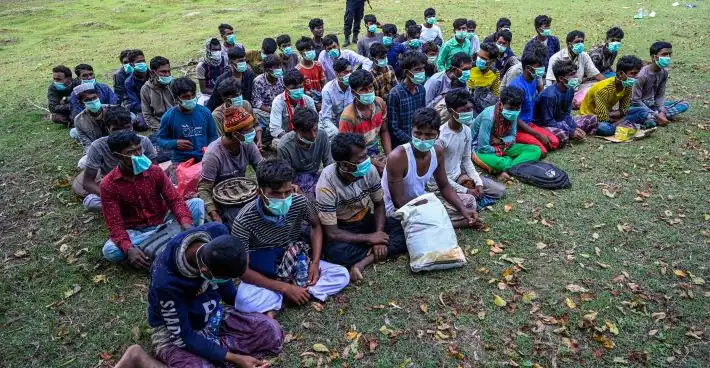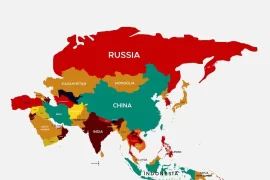On December 26, 2022, at least 20 Rohingya people, also known as Muslim Rakhines, died when a boat carrying 174 Rohingya individuals capsized while attempting to reach Aceh, Indonesia from the shoreline of Bangladesh (bdnews24.com, December 27, 2022). In November 2022, 230 Rohingya people successfully made it to Aceh. International news reports indicate that authorities in Indonesia, India, Sri Lanka, and Thailand rescued at least 100 Rohingya people from the sea in December 2022 alone. These desperate Rohingya individuals, seeking to escape their locked-down lives in the makeshift camps for Forcibly Displaced Myanmar Nationals (FDMNs), took on the risky sea journeys in search of a better future.

This is not the first such tragedy to occur. In fact, these types of events have been happening on a regular basis for the past five years. According to a 2020 UN report, 2,413 Rohingya people left the FDMN camps in Bangladesh in search of a better life (Anadolu Agency/AA, 2022). At least 218 of them died or went missing during the journey. The UNHCR has been consistently warning about this desperation for several years. Most recently, the UN Special Rapporteur on Myanmar, Tom Andrews, urged South and Southeast Asian countries to safely rescue and protect the human rights of Rohingya people who are taking to the seas in search of a better life (Office of the High Commissioner for Human Rights, December 22, 2022).
Around one million Rohingya people currently live in two registered camps named Nayapara Registered Camp (NYRC) and Kutupalong Registered Camp (KRC), as well as 32 makeshift camps (Action Against Hunger, December 19, 2020). Despite having access to life security, shelter, and relief support in these humanitarian camps in Bangladesh, why do these people still take the risk of putting their lives in danger by embarking on perilous sea voyages in search of a better life?
Despite global humanitarian efforts and even bilateral negotiations between Bangladesh and Myanmar about the repatriation of Rohingya people, no progress has been made. Instead, the violence against Rohingya people in Myanmar has continued to escalate in 2022 (The Armed Conflict Location & Event Data Project/ACLED, 2022).
Meanwhile, Amnesty International has reported that Meta (commonly known as Facebook) has failed to stop the spread of hate speech against Rohingya people in Myanmar (Amnesty International, 2022). These unfortunate individuals have been left with little hope for a better future.
A Rohingya individual told FAIR, “Living in a fortified chamber with all the facilities is not life to live.” These people want a visible future for themselves and their children, and this desperate desire for a better life drives them to take risks and put their lives on the line. Hundreds of Rohingya people embark on perilous boat voyages across the Bay of Bengal in an attempt to reach Malaysia, Thailand, and Indonesia (Anadolu Agency/AA, 2022).
Bangladesh’s Refugee Relief and Repatriation Commissioner stated that the government is trying to discourage Rohingya people from taking life-threatening sea journeys to meet up with their peers in Southeast Asian countries like Indonesia, Malaysia, Singapore, and Thailand (The Business Standard, December 27, 2022).
The Government of Bangladesh and the Rohingya community leaders have called on the international community, including powerful countries, to exert all-out pressure on the Government of Myanmar to expedite the repatriation of the Rohingya people without any further delay and to take all necessary measures to stop any form of state and mainstream community-driven violence against minorities in the Northern Rakhine State of Myanmar.







